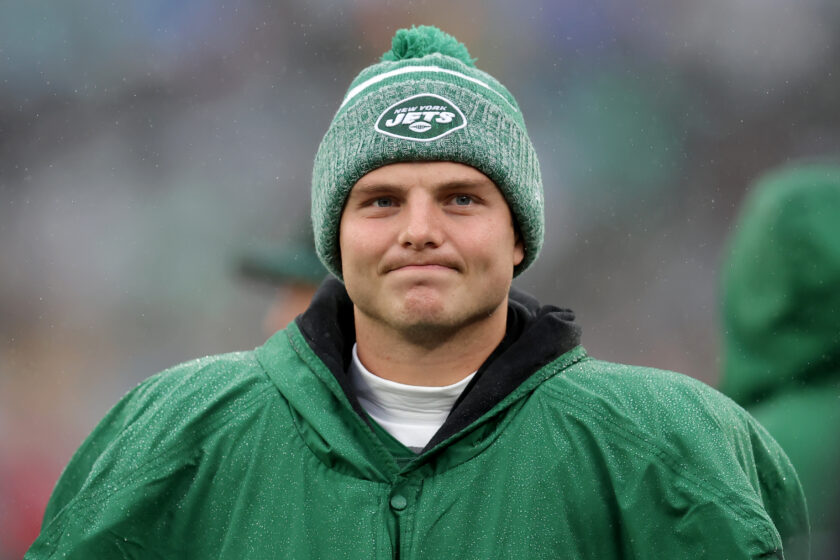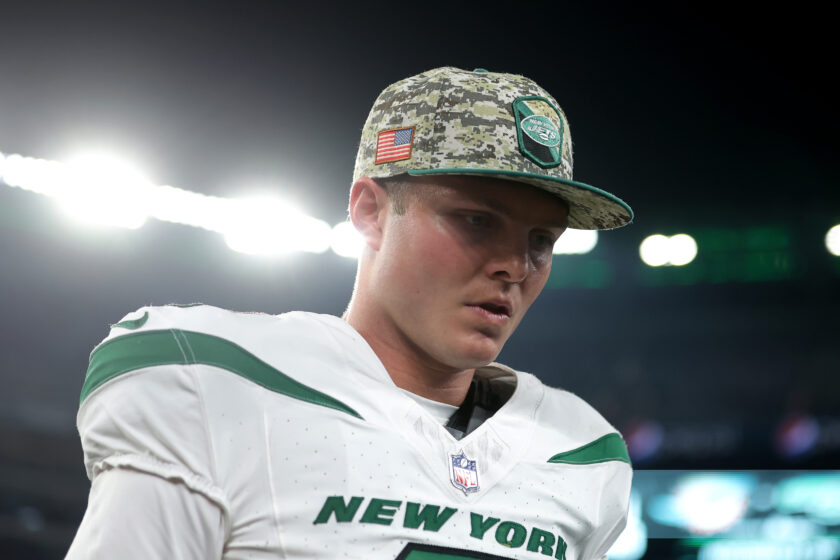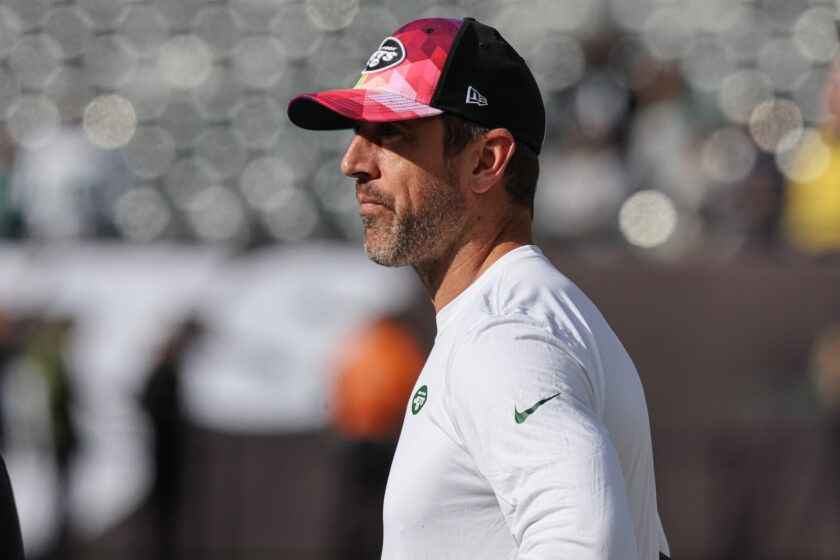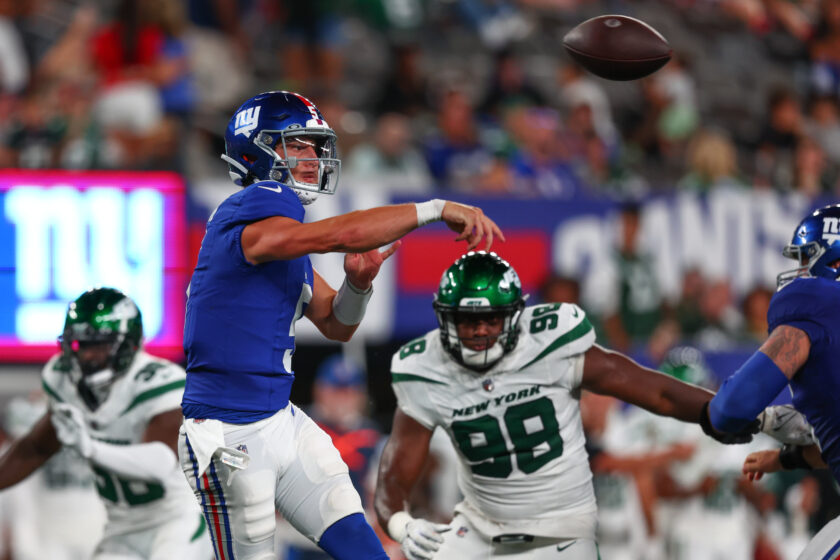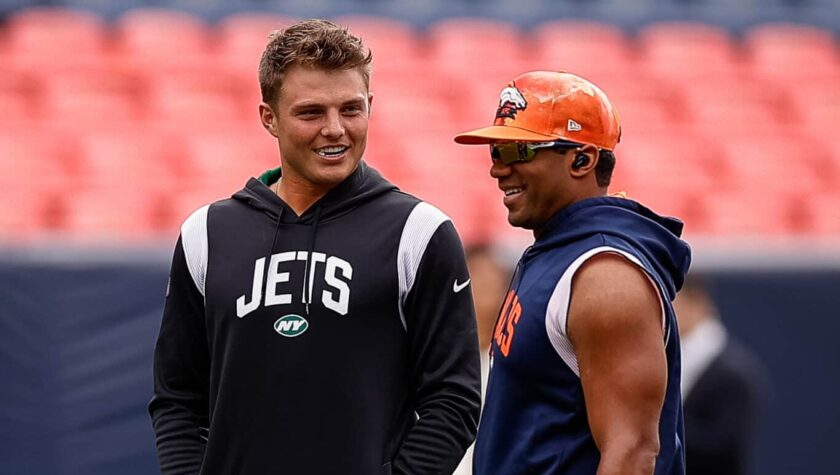New York Jets: NFL Officiating explains controversial late penalty
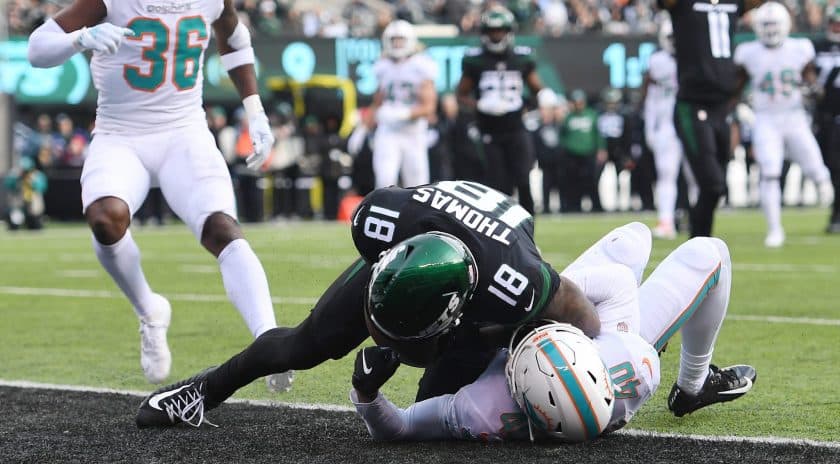
NFL head of officiating Alberto Riveron spoke about the crucial penalty that indirectly contributed to the New York Jets’ Sunday victory.
The NFL had some explaining to do after the New York Jets’ 22-21 victory over the Miami Dolphins. League head of officiating Alberto Riveron was on the case.
New York (5-8) escaped MetLife Stadium with a win thanks to a 44-yard game-winning field goal from Sam Ficken. The special teams’ heroics were not without controversy.
With Miami leading 21-19, the Jets faced dire circumstances at the cusp of Miami territory. They were situated at the 46-yard-line and faced a third down. Eighteen yards were necessary to pick up a first down imperative to keeping the game alive.
The situation appeared dire shortly after, as Darnold’s pass to Vyncint Smith fell incomplete, setting up a long fourth down. However, a second look at the play was demanded by replay officials.
The ensuing review determined that Dolphins cornerback Nik Needham had interfered with Smith, hitting the receiver prior to Darnold’s throw reaching him.

Granted a fresh set of downs, the Jets immediately took advantage. Darnold would find running back Ty Montgomery for 12 yards on the first play from the Miami 38, the spot of Needham’s foul. Ficken kicked his winning triple after a Montgomery run for no gain and a Darnold spike with four seconds remaining.
Riveron explained the unusual review process in a pool report after the game.
“We (saw) in the line feed (the initial view of the play) some contact,” Riverson said. “After we look at it, we get a couple of replays which show us that it’s clear and obvious that (Needham) grabs (Smith) by his shoulder, turns him prior to the ball getting there, and significantly hinders him before the ball arrives. Therefore, by rule, that’s defensive pass interference.
“We (brought) the referee over. We look at it. We confer. We all agree. Therefore, we changed the ruling on the field and we put a flag down for defensive pass interference.”
Understandably, both teams had contrasting views of the fateful call. Both Darnold and Smith were surprised that a flag wasn’t thrown from the onset.
“I definitely thought it was DPI and I’m just happy that they reviewed it,” he said. “I thought first and ten is obviously a lot easier than fourth and 18, so it was good for us to get that call and move the chains and continue the drive.”
“(Needham) came up on me and grabbed my right arm. I knew it was pass interference from the beginning,” Smith concurred. “I had another one in the beginning of the game they didn’t call. So I was upset they didn’t call that one.”
The opposing Dolphins obviously saw things differently. Head coach Brian Flores was visibly agitated with officials as he left the field but declined to comment on officiating despite multiple queries in his postgame press conference. His players, on the other hand, publicly expressed their displeasure with the call.
Needham was particularly displeased with Sunday’s officiating. Earlier in the game, he appeared to prevent a Jets touchdown when he wrenched the ball away from the grasp of Demaryius Thomas as the latter went for the end zone. However, another review, this one likewise initiated by the replay booth, ruled that Thomas had control of the ball as he entered the end zone. That score gave the Jets a 16-6 lead, their largest lead of the afternoon.
“(It’s) very frustrating to lose like that,” Needham said. “Got them in a fourth-down situation, sacked them, had them backed up out of field goal range. We’re about to win the game right there. And then they give the game to the officials. That’s crazy.”
Needham would label the pass interference call as “trash” and was surprised they reviewed the third-down play.
“We could’ve all had a great game and not even have the game close like that. It’s a team effort but I feel like definitely if those two plays don’t happen the game is different for sure.”
Reviews of pass interference calls (or lack thereof) were instituted for the 2019 season after a controversial missed case of the penalty during January’s NFC Championship Game. The process yielded few overturns in the early going, but have become slightly more prevalent in recent weeks. Riveron clarified that interference replay rules and regulations are “not being applied any differently than (they were) at the beginning of the year.”
“We treat each one individually. That’s how we officiate the play on the field or review the play, for lack of a better term,” Riveron said. “If the numbers show one thing, we really don’t concern ourselves where we are that week, that month or that game. Again, we basically look at each ruling, at each call, at each play on an individual basis and then we apply the rule.”
[sc name=”Twitter Follow Link” text=”Geoff Magliocchetti” username=”@GeoffMags5490″ ]
